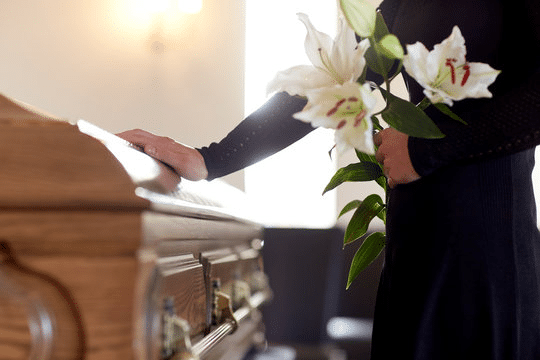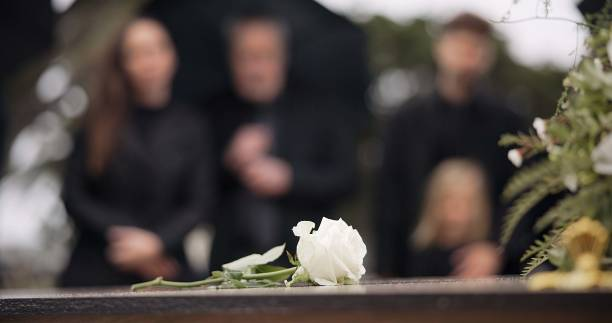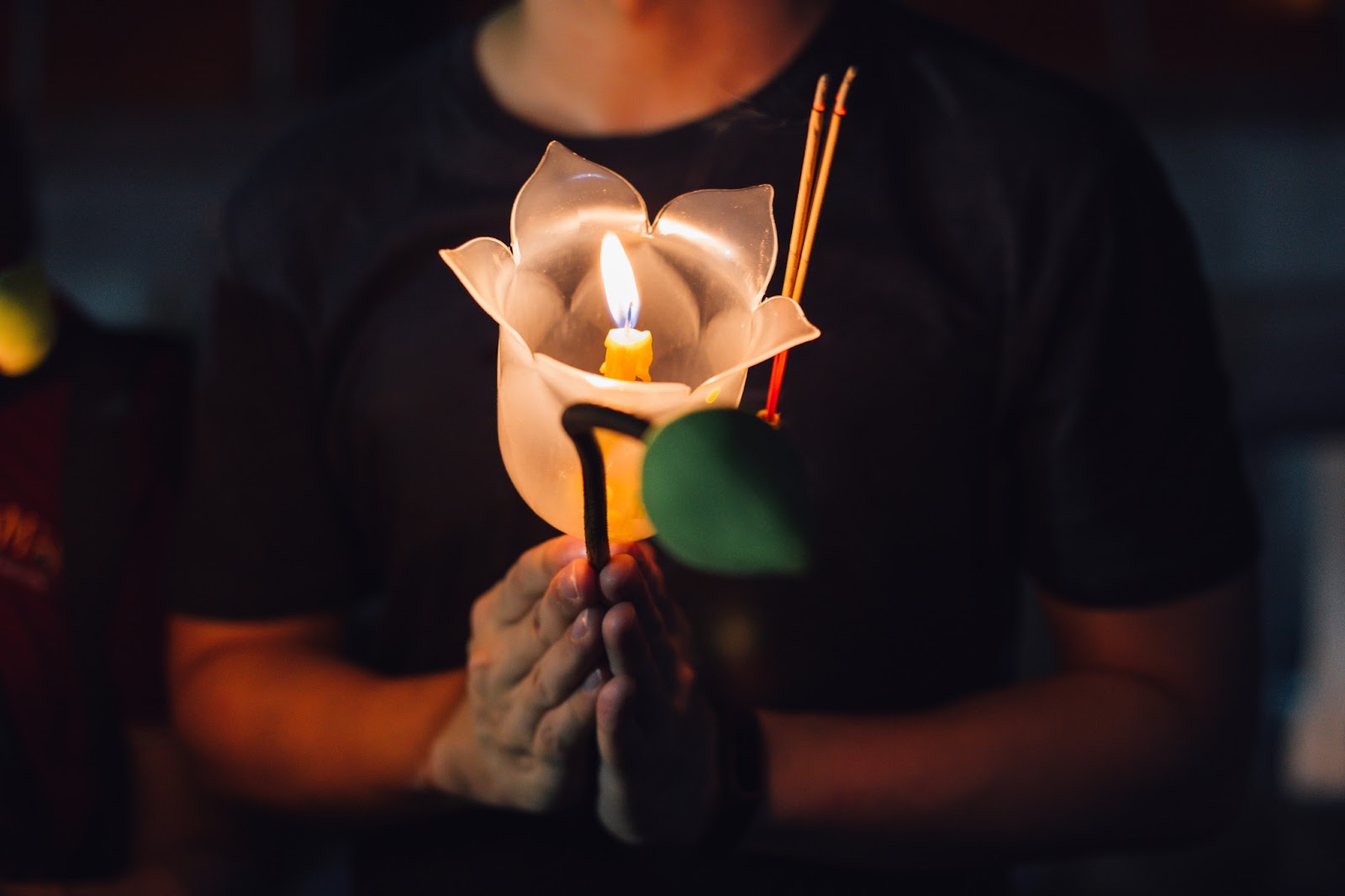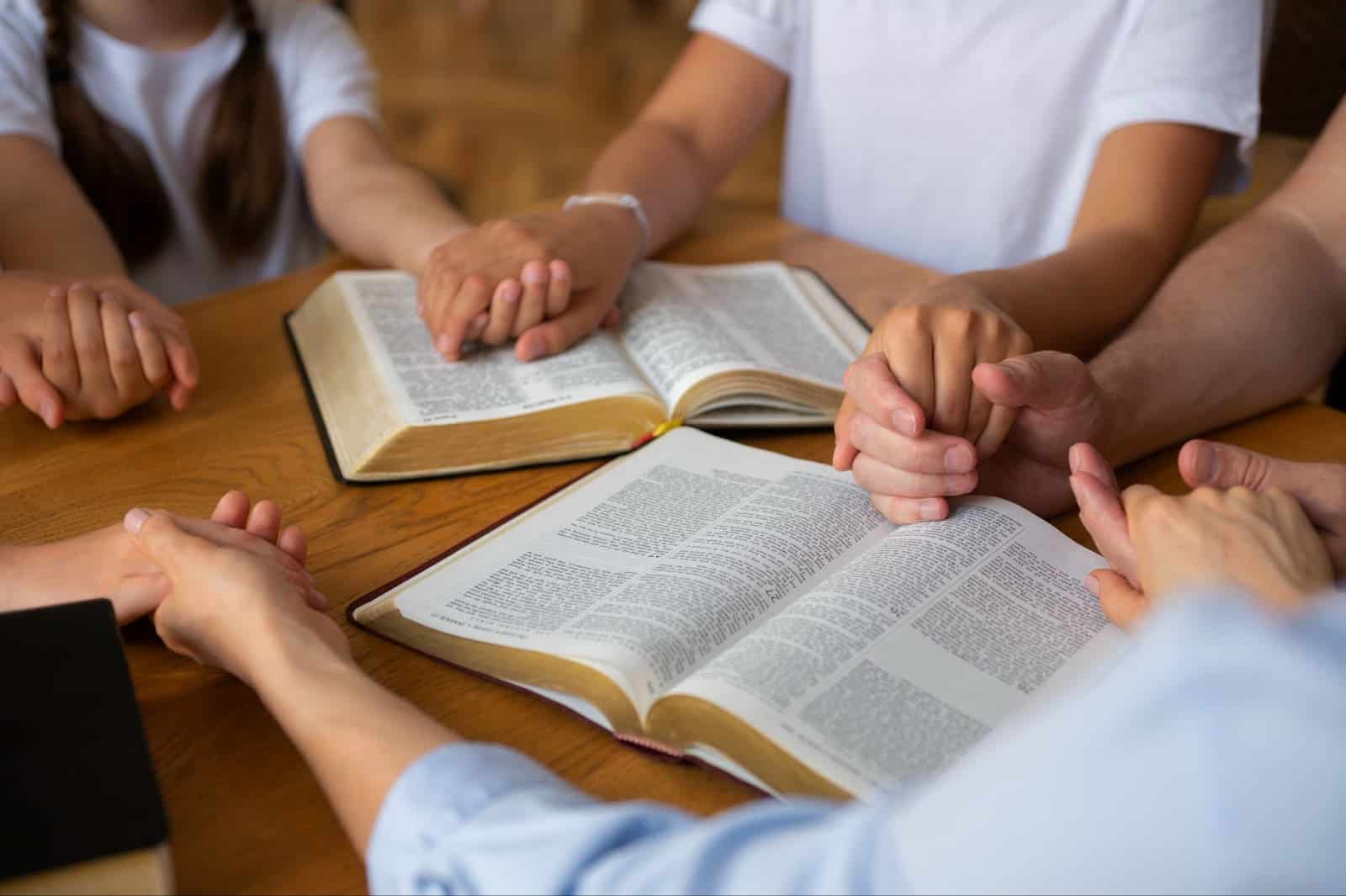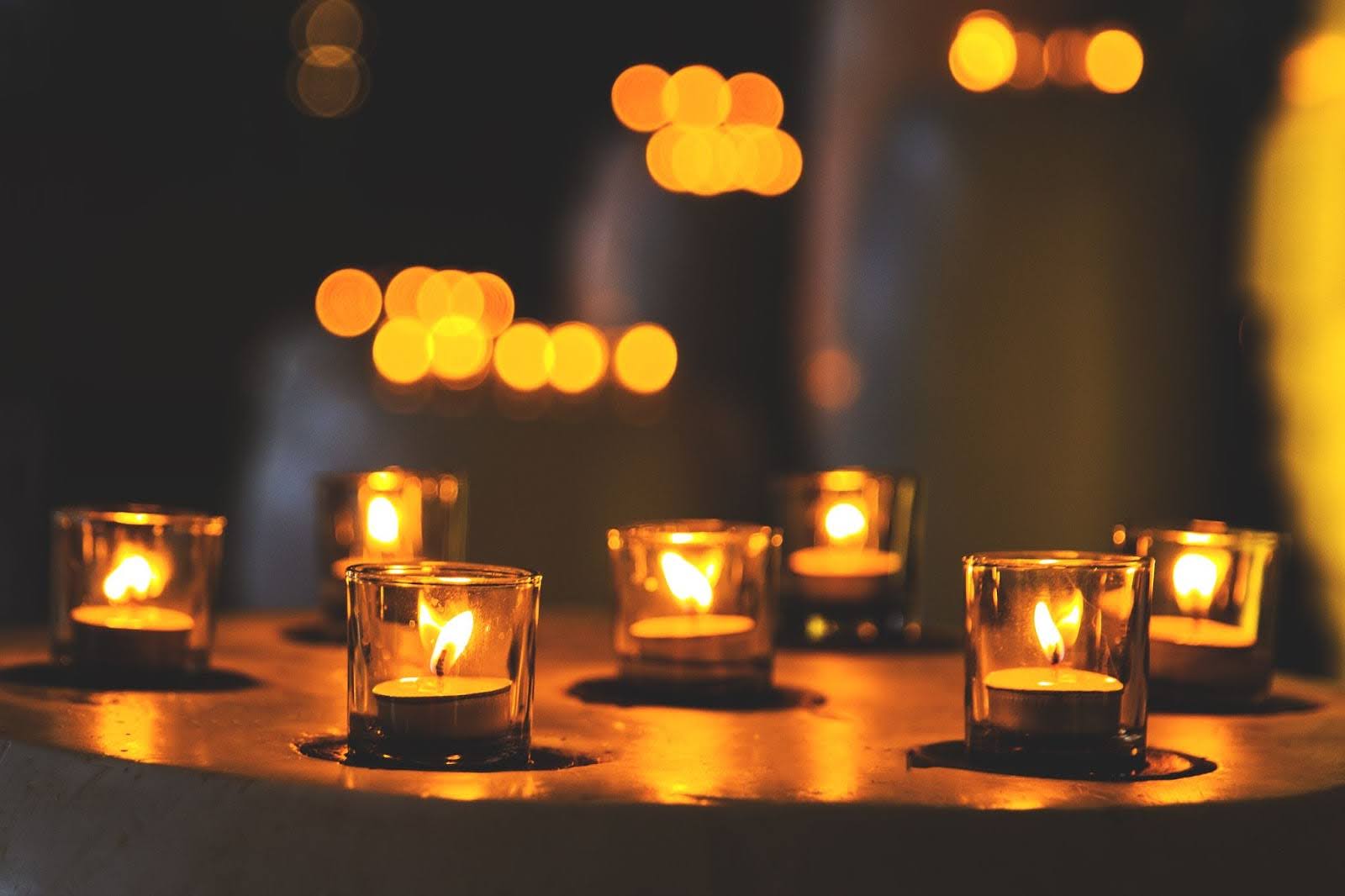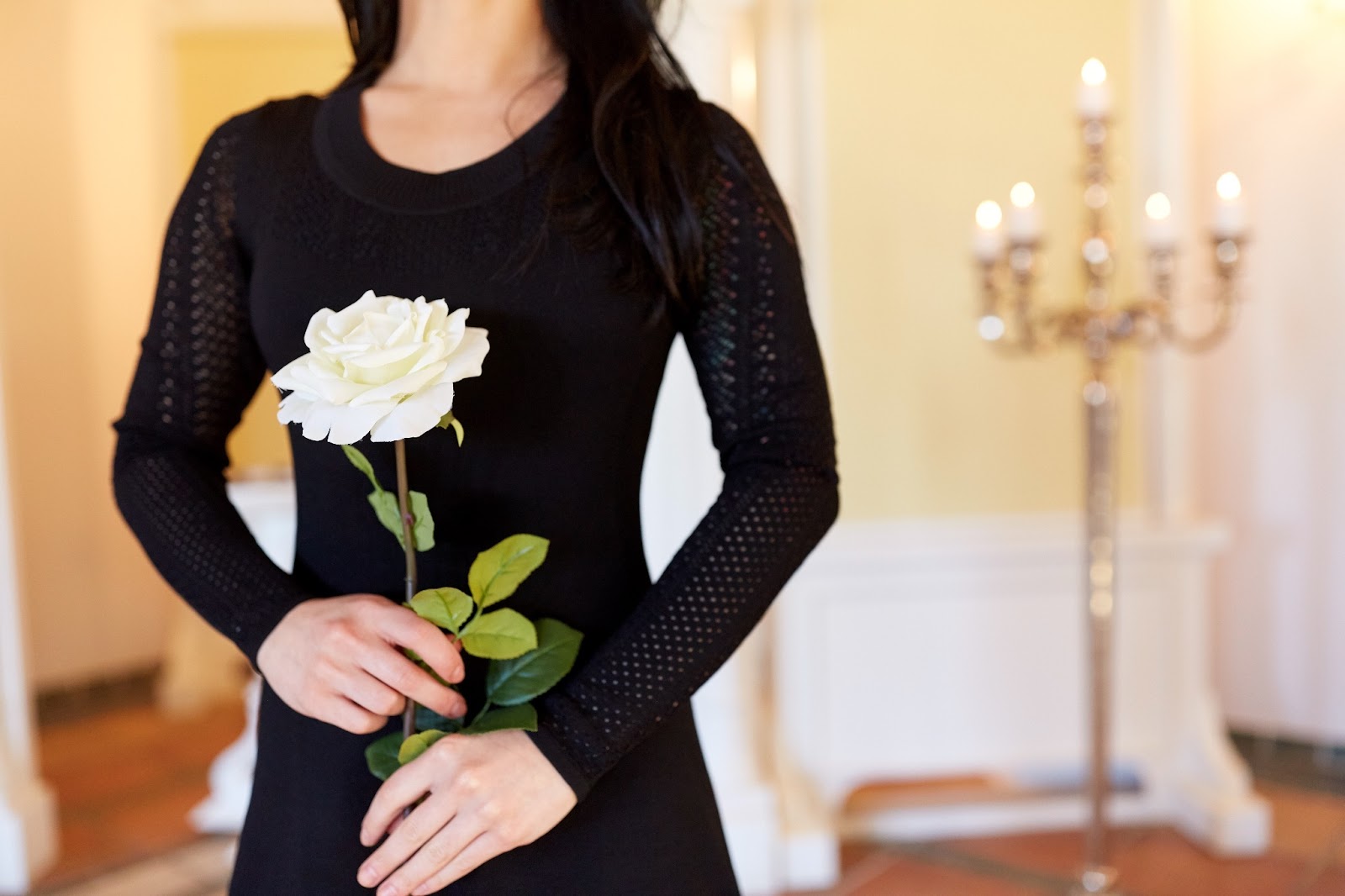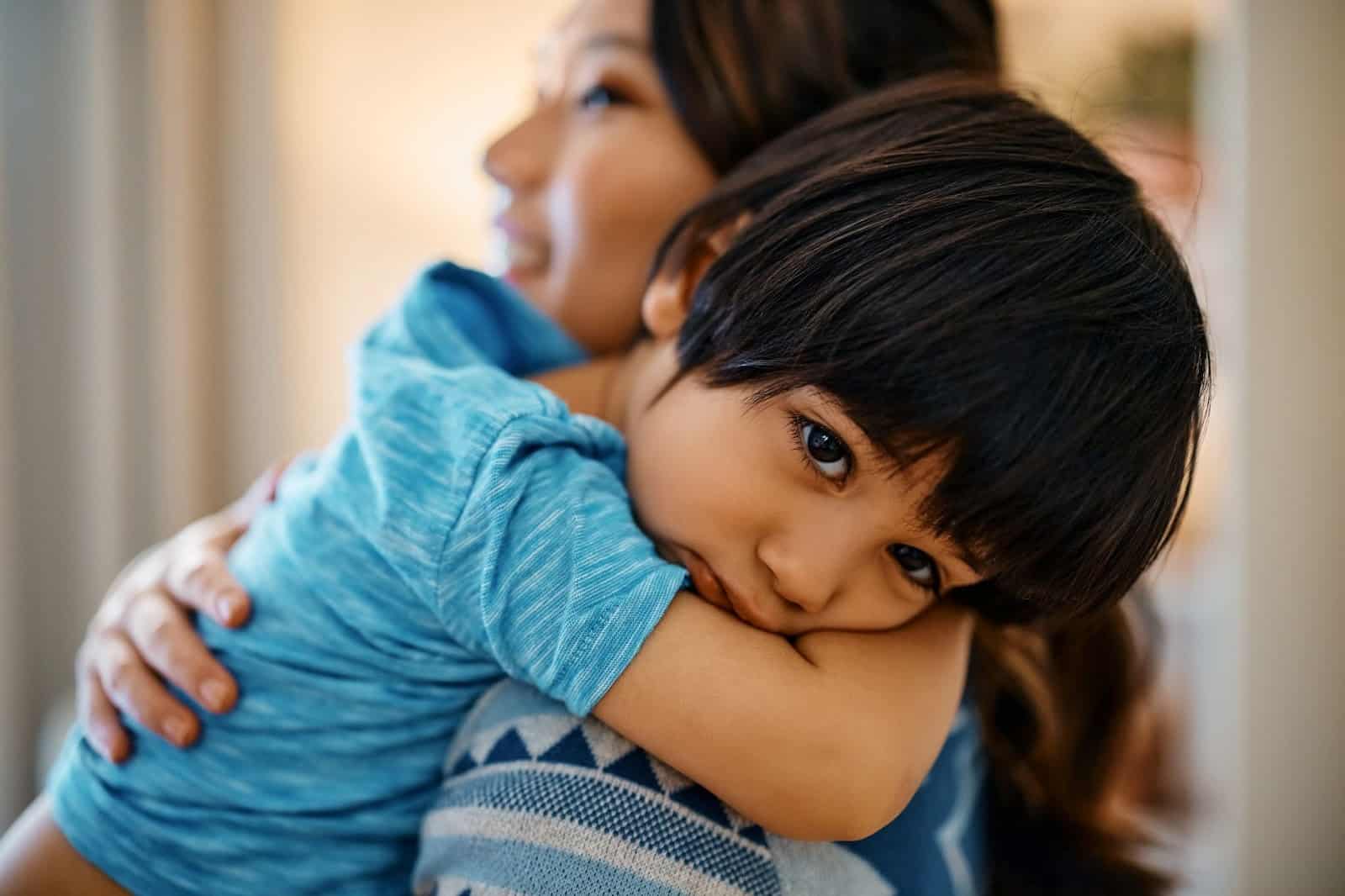Chinese culture has many old traditions, and Chinese funeral superstitions play a big part in them. These practices are designed to honour the dead while protecting the living from bad luck. Here’s a deeper look into Chinese funeral superstitions and etiquette.
Superstitions
Chinese funeral superstitions suggest that the way a person is honoured after death can affect the family’s luck and well-being. Families need to follow these beliefs to avoid misfortune.
1. Funerals for Elders vs. Young People
Funeral traditions vary based on the age and status of the deceased. Parents cannot arrange funerals for their children, and unmarried individuals are taken to funeral homes instead of the family home. A child’s death is treated with silence—no funeral rites are performed, as elders are not supposed to show respect to the young.
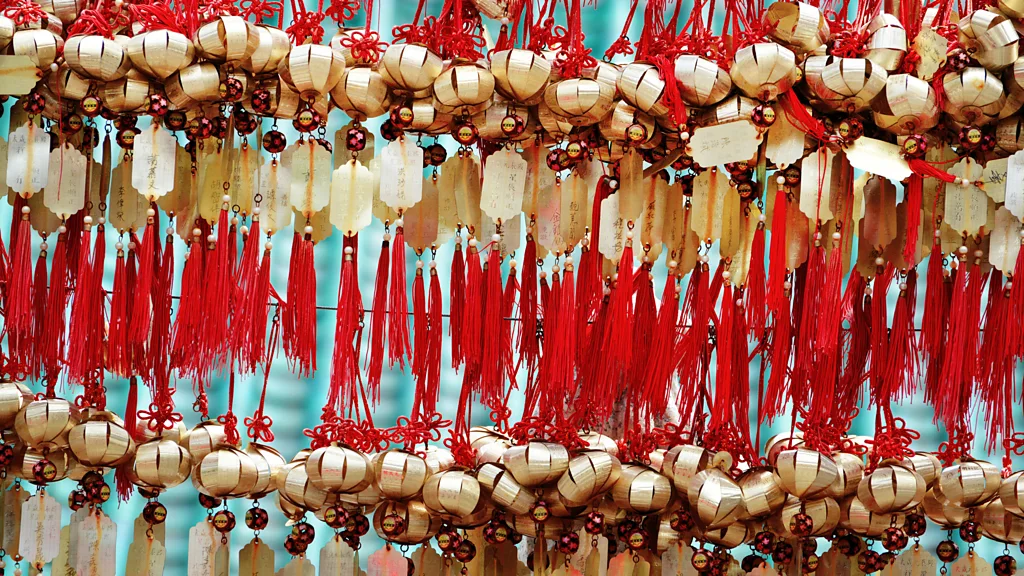
(Source: BBC)
2. No Funerals During Celebrations
If a death occurs around major celebrations like Chinese New Year, funerals are postponed. Based on Chinese funeral superstitions, having a funeral during this time is seen as incredibly unlucky. People avoid visiting homes that are holding funerals to prevent bad luck from spreading.
3. The Casket Must Remain Open
During the wake service, the casket remains open to prevent the spirit from becoming trapped. This allows the soul to move freely. It helps the spirit pass on without any barriers or interruptions.
4. Mirrors and Reflections
In many homes, mirrors are covered or removed during the wake. This is because seeing the reflection of a coffin in a mirror is thought to bring death to another family member soon after.
5. Gambling to ‘Guard’ the Corpse
At the wake, gambling often takes place in the courtyard. This isn’t for entertainment; it’s believed the corpse must be guarded, and gambling helps those watching over the body stay awake. It also distracts from grief.
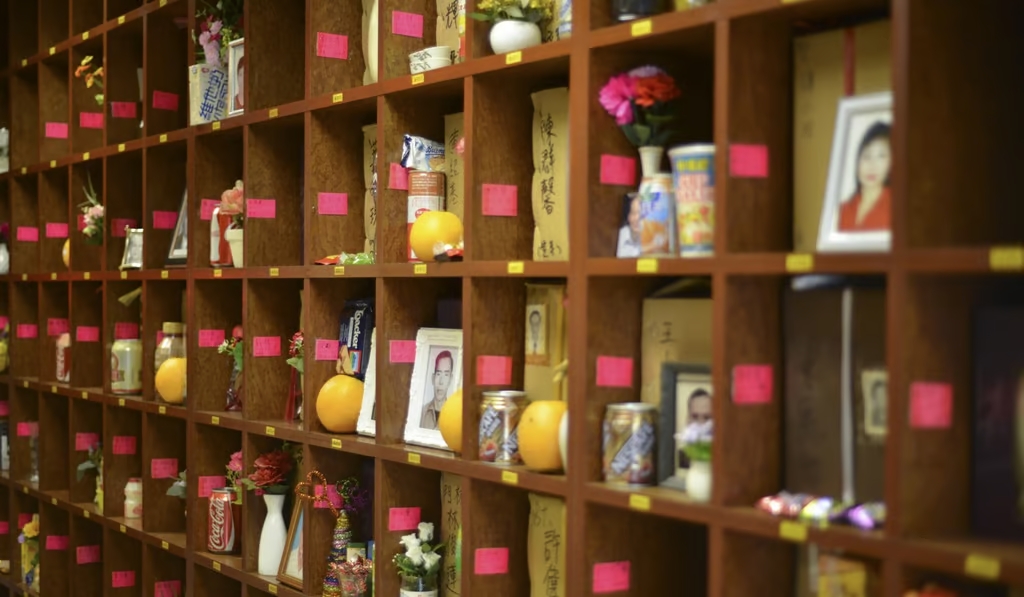
(Source: SCMP)
6. Nailing the Coffin Shut
Once the prayer ceremonies conclude, mourners wail loudly as the coffin is nailed shut, signifying the final separation between the living and the dead.
Yellow and white paper is then pasted on the coffin to ward off evil spirits. During the sealing of the coffin, it’s customary for everyone to turn away, as watching this process is considered unlucky.
7. Return of the Soul on the Seventh Day
On the seventh day after death, it’s believed the soul of the deceased will return home. Family members remain in their rooms to avoid seeing the spirit. Some sprinkle flour or talcum powder on the floor to detect the spirit’s presence.
8. Protecting the Spirit’s Return
To help the soul find its way back to the home, a red plaque with an inscription may be placed outside the house. This ensures the spirit doesn’t get lost.
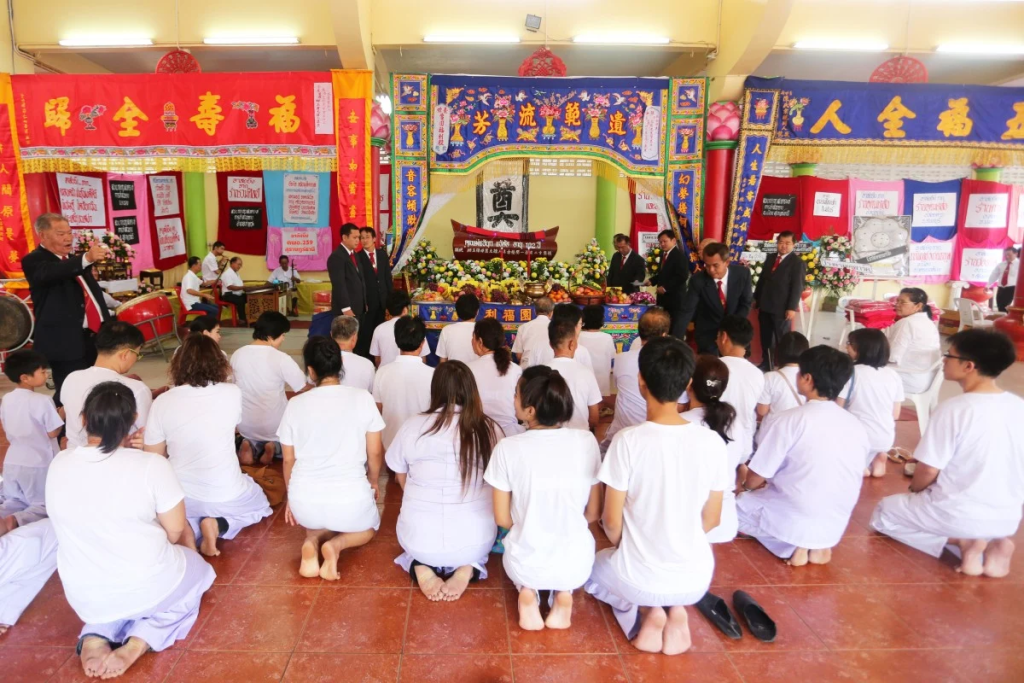
(Source: SCMP)
Etiquette
Chinese funeral etiquette is based on specific practices, and adhering to these customs is essential to honour the deceased and support their family.
1. Appropriate Attire
Family members avoid wearing jewellery or red clothing during the wake, as red is associated with happiness and celebration.
2. Mourning Period
Traditionally, family members, especially the older generation, do not cut their hair for forty-nine days after the death, showing their respect and grief.
3. Maintain a Serious Demeanour
It’s considered highly disrespectful to make jokes or tell funny stories during the funeral. The mood should remain solemn and reflective.
4. Giving Condolence Money (Bai Jin)
Guests attending the funeral are expected to bring ‘Bai Jin’, or condolence money. This not only shows respect but also helps the family cover funeral expenses.

(Source: Envato)
5. Setting the Coffin
The coffin is placed on a stand either in the house or courtyard, with the head of the deceased facing inside. Family members arrange wreaths, gifts, and a portrait at the head of the coffin, while food offerings are placed in front.
6. Family’s Position During the Wake
Family members are seated around the coffin in strict order. The eldest son sits at the left shoulder, while the spouse takes their place at the right. Late-arriving relatives are expected to crawl on their knees towards the coffin as a sign of respect.
7. Funeral Altar
An altar is placed at the foot of the coffin, with incense, white candles, and joss paper offerings. Guests are expected to light incense and bow in respect to the family. A donation box is usually available to help the family with the costs.
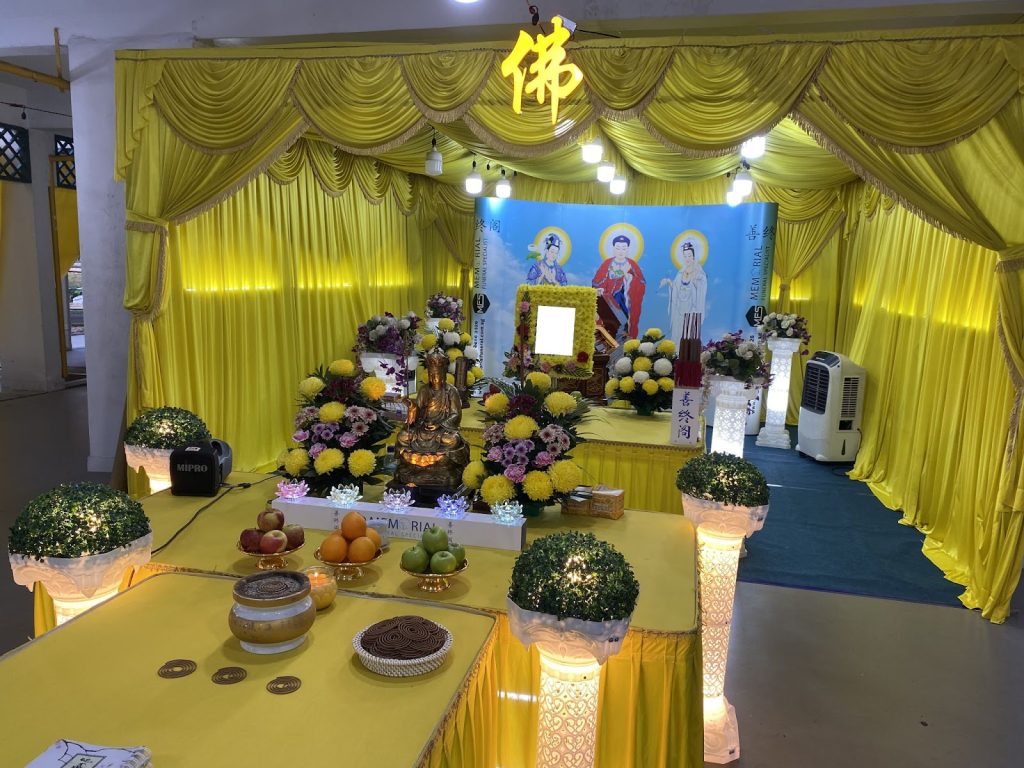
(Source: Memorial Funeral)
8. Mourning Colours
Family members wear different coloured clothing depending on their relationship with the deceased. Children and daughters-in-law wear dark colours like black, grandchildren wear blue, and great-grandchildren wear light blue. Sons-in-law wear brighter colours like white, as they are seen as outsiders to the immediate family.
9. Wailing as a Sign of Respect
Daughters-in-law and close blood relatives are expected to wail loudly to show their respect and grief. The more wealth left behind by the deceased, the louder the wailing tends to be.
Conclusion
These funeral customs follow old beliefs to honour the deceased and keep the family safe from bad luck. Chinese funeral superstitions and etiquette work together to pave a smooth journey for the soul and the family avoids bad luck. Whether it’s through the colours worn, the way the body is handled, or the rituals performed, Chinese funeral customs provide a way to pay respect to those who’ve passed while safeguarding the well-being of those left behind.
Let us help you arrange a funeral service for your departed loved ones. Get in touch with Memorial Funeral for more information.

